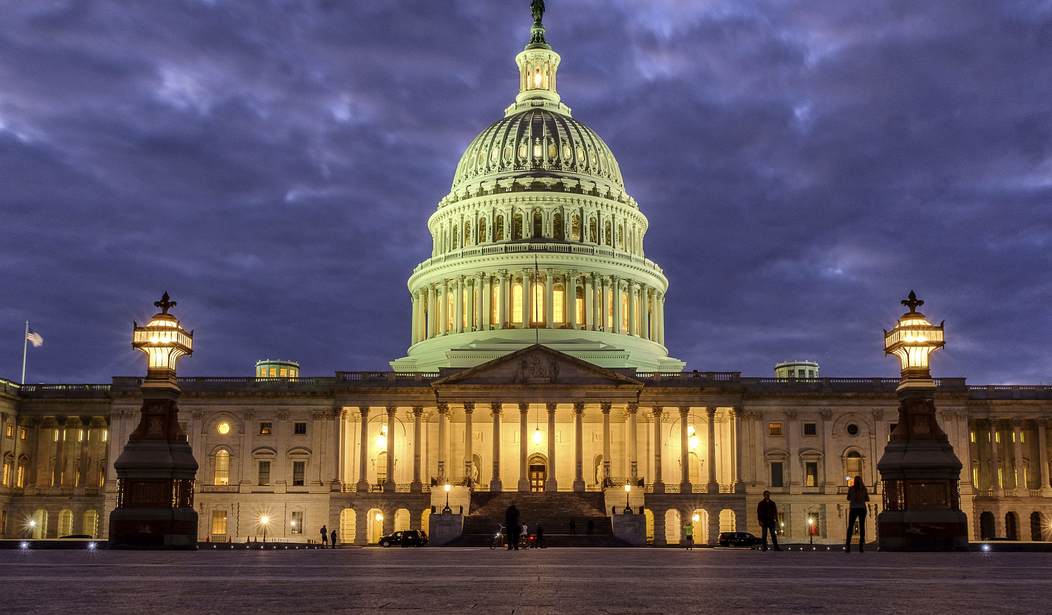Republicans held the Senate! Democrats took the House but by a narrower margin!
Did I just embarrass myself?
I write this Election Day morning, before most polling places even opened. I don't know the actual results, of course.
But I'll pretend I do because I trust the betting odds.
As of Tuesday morning, ElectionBettingOdds.com, a site I co-founded, says Republicans have an 84 percent chance to hold the Senate and Democrats a 71 percent chance to retake the House.
Why trust a bunch of gamblers? Because they have the best track record!
Polls have flaws. Some people lie to pollsters or just give them what they think is the "proper" answer. Others won't even talk to them.
Pundits are worse. They often let their personal preferences skew their predictions.
Bettors are more accurate because of something called the "wisdom of crowds." It turns out that an average of many people's estimates is usually more accurate than any one person's views.
Researchers noticed that while watching the TV series "Who Wants to Be a Millionaire." Stumped contestants could poll the audience or call a friend.
The friends, often experts of some kind, got answers right 65 percent of the time. The studio audience included few experts, but the crowd got the answer right 91 percent of the time.
The crowd that bets on elections online (political betting is legal in Europe and at a small American futures market called PredictIt.com) works hard to get the answers right.
Recommended
They look at more than polls. They factor in the latest news, try to sense the mood on the ground and research candidates' campaign tactics.
They try harder than pundits because their own money is on the line. You've met blowhards who confidently predict things until someone says, "Want to bet?" Then they shut up. People who put their money where their mouths are become more careful.
Prediction markets, or futures markets, are not new. Stock markets are prediction markets where people bet on companies' future earnings. A hundred years ago, "More money was traded in election markets than in stock markets," says economist Robin Hanson.
Then, unfortunately, governments in America banned most betting. That deprived Americans of one of the best predictors of future events.
There were a few exceptions. Fifteen years ago, U.S. officials asked Hanson to create a betting market that might predict future problems.
"The Department of Defense heard prediction markets were interesting, doing powerful things," says Hanson. "They said, 'Show us it works for stuff we do... (P)redict events in the Middle East.'"
As usual, some elected officials were horrified by the idea of people betting on things like possible terrorism. Sen. Ron Wyden stood up on the Senate floor to declare such betting "ridiculous and grotesque." The next day, the secretary of Defense declared the project dead.
So the Pentagon is deprived of predictions that might save lives. It's too bad, because bettors are just, well, better.
But not perfect. While the betting odds are almost always the best predictors, in the last presidential election they (along with polls and pundits) were wrong about Donald Trump. Bettors gave him only a 20 percent chance.
I shouldn't say "wrong." Twenty percent just means Trump had a 1 in 5 chance. That's not nothing.
The betting markets also got Brexit wrong. They gave it a 25 percent chance.
But in both cases, as election results came in, the betting odds shifted much faster than the TV coverage. It was fun watching anchors try to catch up to what ElectionBettingOdds.com already predicted on my phone.
As I write, the website says this about specific states:
Republicans will narrowly win Arizona (51 percent chance) and Missouri (57), and easily win North Dakota (80), Tennessee (80) and Texas (79).
By the time you read this, say bettors, Democrats will have flipped Nevada (60 percent chance) and held West Virginia (75), Montana (65) and New Jersey (81).
Republicans will win the Georgia governor's race (64 percent chance), but Scott Walker will lose in Wisconsin (59), and Florida now probably has a new far-left governor (64).
Were the bettors right?
I assume some were not. After all, a 60 percent chance of winning means winning only 6 out of 10 times.
Whatever way it turns out, we'll add the results to the "track record" section at ElectionBettingOdds.com.
We'll also keep tracking the 2020 presidential race.
Odds update every five minutes, but Tuesday morning the odds for 2020 were:
Donald Trump: 36.1 percent
Kamala Harris: 10.9 percent
Elizabeth Warren: 5.9 percent
Tulsi Gabbard: 5.7 percent
Bernie Sanders: 4.2 percent
Joe Biden: 4.1 percent
Unfortunately, I don't see many advocates of restrained government on that list.

























Join the conversation as a VIP Member